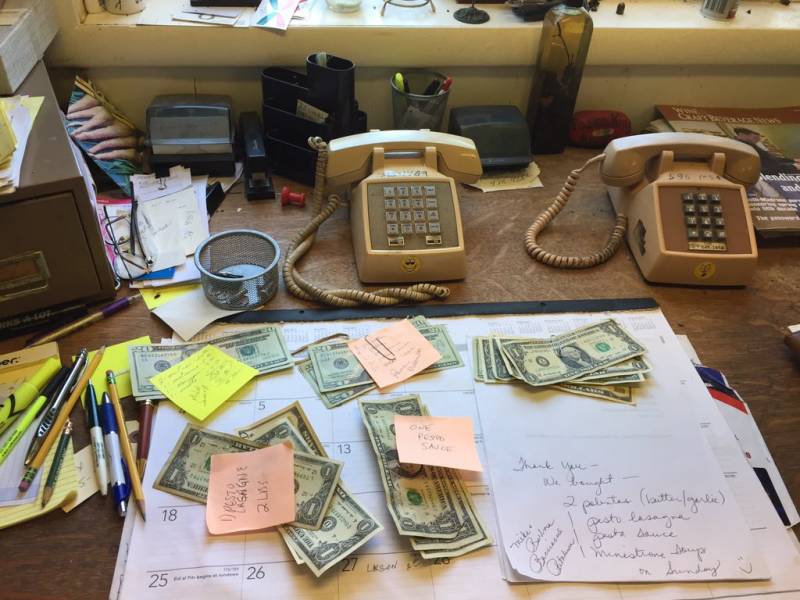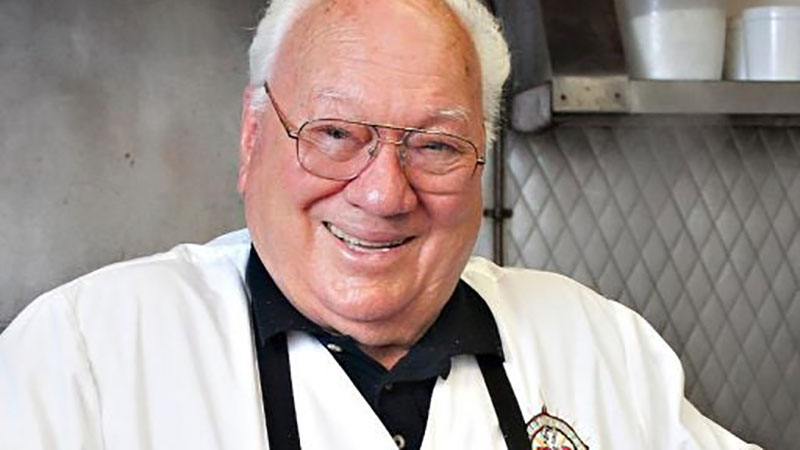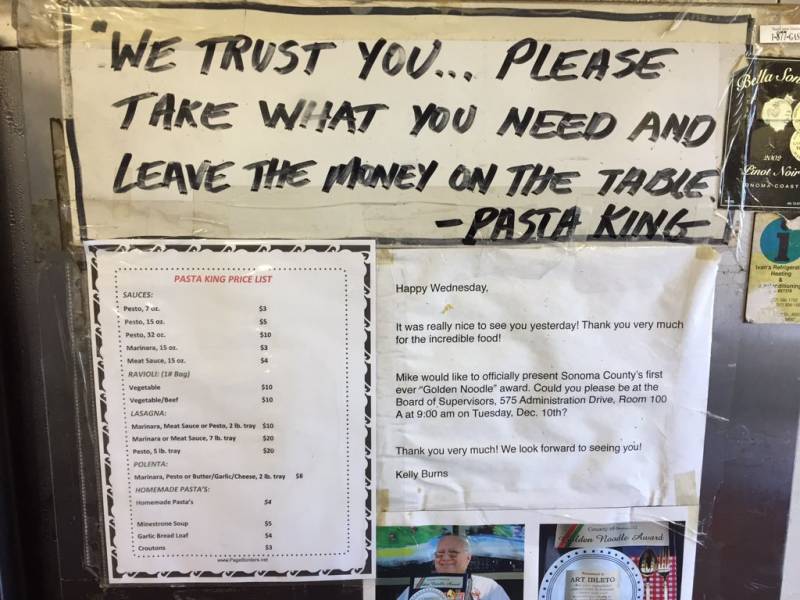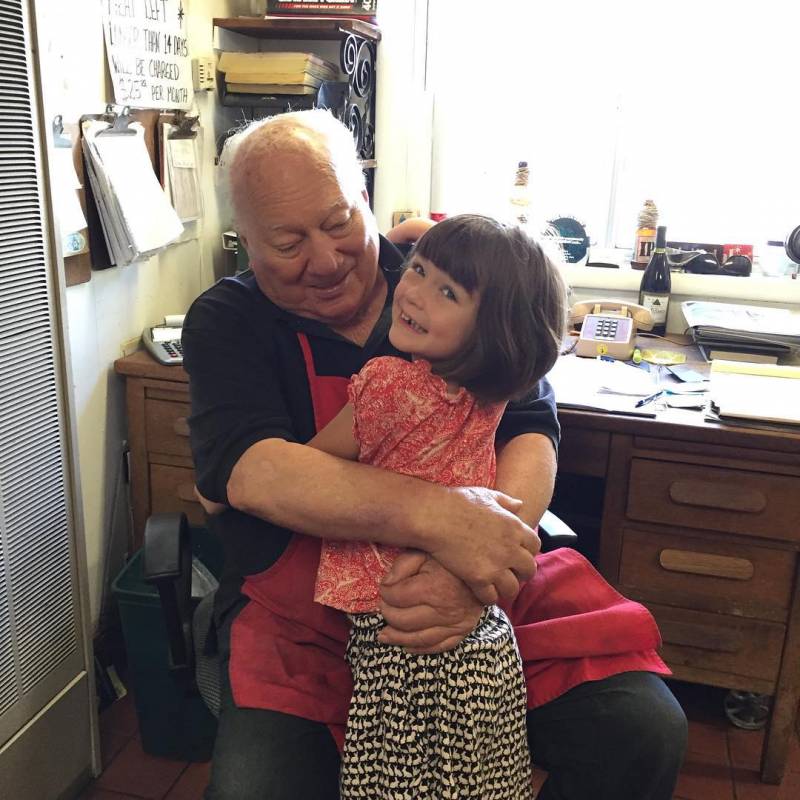Inside the spacious kitchen shed at his Cotati home where he made his famous pasta, Art Ibleto taped a sign to the large industrial refrigerator:
WE TRUST YOU. PLEASE TAKE WHAT YOU NEED AND LEAVE THE MONEY ON THE TABLE. —PASTA KING.
For drivers who’d notice the “Pasta King” sign from the rural Sonoma County road and pull into in Ibleto’s driveway, the door to the kitchen was always unlocked. The fridge was always full of penne, marinara, pesto and lasagna. And when Ibleto wasn’t around to take people’s money, the desk was nearly always covered with folds of cash next to the touch-tone landline phone and old Rolodex, accompanied by notes of appreciation.
Ibleto, who died Tuesday morning at the age of 94, was the kind of person for whom this honor system was natural, instead of novel. For all of Ibleto’s philanthropy and civic service to the Sonoma County community that he adopted as a young immigrant from Italy, one fact sticks with many of the Pasta King’s fans most: he trusted you.

The word “iconic” is overused these days. But Ibleto was, without question, a Sonoma County icon. The man was everywhere—at the Sonoma County Fairgrounds where he built his “Spaghetti Palace” in the early 1970s; at Santa Rosa’s Wednesday Night Market; at all manner of charity feeds and bakes and luncheons and parties, many for which he donated his time and food; at special events, celebrations, weddings and funerals; and back at his home kitchen in Cotati, where he’d greet visitors in a thick Italian accent: “Ciao bella! You like pasta? Red or green?”



